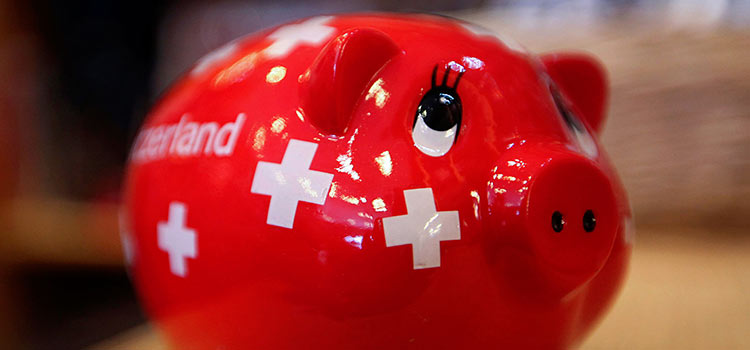The reaction of the German banks mentioned in the “Panama scandal”
 The day after the announcement of the “secret” documents of the Panamanian law firm Mossack Fonseca in the German newspaper “Munich” a statement by the German government appeared. This statement was due to the fact that the publications mentioned two German banks that had a relationship with the firm Mossack Fonseca. Their German government officials were quick to assure the public that measures would be taken to amend German law in order to prevent the anonymous use of companies. German Justice Minister Heiko Maas said that Germany is at the forefront in the fight against money laundering and the fight against terrorism.
The day after the announcement of the “secret” documents of the Panamanian law firm Mossack Fonseca in the German newspaper “Munich” a statement by the German government appeared. This statement was due to the fact that the publications mentioned two German banks that had a relationship with the firm Mossack Fonseca. Their German government officials were quick to assure the public that measures would be taken to amend German law in order to prevent the anonymous use of companies. German Justice Minister Heiko Maas said that Germany is at the forefront in the fight against money laundering and the fight against terrorism.
Therefore, the practice of using companies by anonymous owners should be stopped. German Finance Minister Wolfgang Schäubl spoke of the need to introduce additional measures in the fight against abuse and violations of tax laws. The country’s Minister of Economy Sigmar Gabriel went even further and spoke in favor of banning offshore companies and foundations that hide the true names of their owners. He stated to the German newspaper Sueddeutsche that all members of society, regardless of state or political status, should adhere to the laws. The official German media reported that the German State Register of Companies is not affiliated with Panamanian companies or offshore companies in the Caribbean. Germany, for its part, has always fought, and will struggle with “shadow schemes” that promote tax evasion. Germany also wants to draw the attention of the European Union and all international organizations in order to support Germany’s initiatives in the struggle with such manifestations. In publications, the citizens of Germany are not mentioned and nothing is said about them.
The focus of attention were two German banks – Deutsche Bank and Berenberg in Hamburg. The published documents said that these banks help to hide the capitals of some high-ranking politicians, famous personalities and sports “stars” from taxation in their countries. The accusation against these German banks was based on supposedly well-known documents that revealed the journalists of the organization ICIJ in the form of emails and PDF files. This news was first published in Germany by the Süddeutsche Zeitung, after which the main “investigator” of this newspaper, Georg Mascolo, was interviewed on television. Previously, Georg Mascolo in 2008 was the chief editor of the newspaper Spiegel, but in 2011, after the dissemination of unverified rumors in the print edition, he was dismissed and, until 2013, disappeared from the field of view of the media. In an interview, he said that any bank in Germany could be involved in relations with the Panamanian law firm Mossack Fonseca and named the above two banks. He had especially many questions to the bank Berenberg, which was often mentioned in the so-called documents. As a result, all the accusations against the banks of Germany turned out to be regular soap bubbles.
German banks answer to charges
The response from the banking institutions of Deutsche Bank and Berenberg was not long in coming. Both banks confirmed their intermediation with offshore companies that provided services abroad in Germany. A spokesman for Deutsche Bank said that the bank did provide services and is responsible for its actions. It was emphasized that Deutsche Bank thoroughly checks all the information about its customers. The procedure for verifying the financial activities of its customers of Deutsche Bank has even recently been significantly improved. Bank policy is the implementation of international standards and legislation of Germany, which fully comply with the letter of the law.
Bank Berenberg also stated that they strictly adhere to all the rules in order to avoid transactions with front companies. The bank, through a resident of its subsidiary in Switzerland, which provides asset management services, strictly checked the bank accounts of its clients. Among the clients of the Berenberg Bank, there is not a single client whose name would be unknown. In addition, in the process of cooperation with its customers, the bank constantly monitors all daily financial transactions and draws attention to negative messages addressed to its customers or the bank. The Bank regularly appeals to independent audit firms that carry out inspections. Until now, there have not been any comments from regulatory authorities, therefore the bank considers the quality of inspections to be quite effective. In cases of providing Privatbanking services to clients, the bank’s consultants never offer to open fictitious companies, and in the course of their work, the corporate clients of the bank always presented financial documentation about their tax deductions.
In the coming days, the European Commission will hold a scheduled meeting and submit a law to the legislators for discussion, which is aimed at combating tax evasion.



